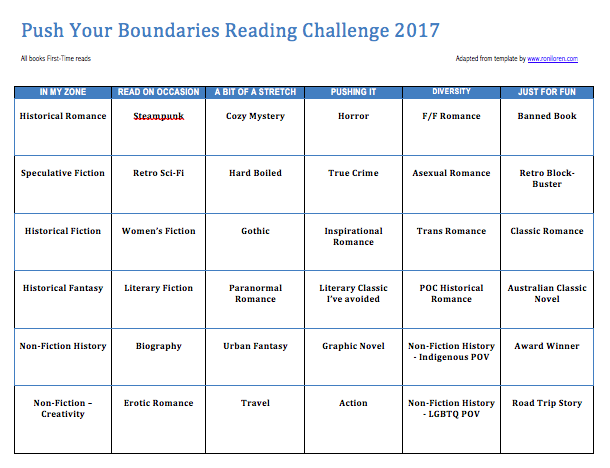
Over the past six weeks I’ve taken on the challenge to write a blog post each week that incorporates Valerie Khoo’s ‘Word of the Week’ from the podcast So You Want to Be A Writer. It’s been a great way to start exploring my inner blogger, and so far I’ve striven to incorporate the word as unobtrusively as possible. This week however, I’ve been unable to move past my fixation with the gender bias inherent in Valerie’s chosen word. So here we go—some thoughts about the word avuncular.
Disclaimer—I’m not a linguist or lexicographer, and my formal study of culture theory has been at the glossing-over end of the spectrum. Still, as a woman who loves words, has worked in male dominated industries, and has come across her fair share of kindly-meant misogynistic attitude, I’m a staunch advocate of exploring what gendered words reveal about society’s values and preoccupations, and identifying opportunities to ‘take the dic out of dictionary’.
The Shorter Oxford English Dictionary definition of avuncular is “maternal uncle…Of, pertaining to, or resembling an uncle”. Furthermore, avunculate is an anthropological term used to describe “the special relationship in some societies between a maternal uncle and his sister’s son.” So far, so good. I can see how the concept of avunculate might have value. Growing up I watched my testosterone driven brother struggle with being the only male in an all-female, single-parent household. If my mother had had a brother (she doesn’t) who was a good bloke, a bit of avuncular role modelling could have saved us all many tears.
So what happens when the genders in this scenario are reversed? A father—a single parent—has a tribe of sons and a sole daughter who is struggling with what it means to be female. Luckily the father also has a sister who strikes up a nurturing, mentoring relationship relationship with the daughter. How would we describe this relationship?
Er … *opens browser – googles ‘feminine equivalent of avuncular’*

Turns out that the feminine equivalent of avuncular is materteral**—a word so rarely used that it doesn’t even make it into the Shorter OED (I checked). The definition above is from the OED Online.***
So why has avuncular stuck over time, and materteral never got off the ground apart from that brief spate of ‘humorous’ references quoted in the OED? One reason might be that materteral doesn’t exactly roll off the tongue. Avuncular is way easier to say. Although it does sound an awful lot like unctuous. (I’ll come back to that…) And then of course there’s the patriarchy.
The Encyclopaedia Brittanica tells me that avunculate, as a relationship, is typically meaningful in matrilineal societies, where descent is traced through the female line—blood taking care of those who have proven blood ties. It’s potentially a very woman-centric thing, maybe even a nurturing thing, and it has overtones of initiating the next generation into adult responsibilities. That’s not our society, though. Our mainstream society is predominately patrilineal, has scant frame of reference for non-commercial nurturing relationships beyond the nuclear family, and is suspicious of talk of initiation. In a way it’s a wonder that avuncular hasn’t been chucked out with materteral.
Yet avuncular is alive, if not exactly kicking. For me it conjures up the smell of wool cardigan impregnated with stale camphor, a complexion challenged by age and a fondness for cheap whisky, a comfy recliner seat covered in faux leather, a predilection for reciting Rudyard Kipling poems—and a tendency to call girls and young women ‘chicky’.
Yep, that’s unctuous.
But hang on. Didn’t Valerie explicitly say of avuncular, “Please note it’s not some kind of ‘creepy uncle’ reference.” That’s an interesting qualification. It acknowledges that the word ‘uncle’ isn’t always thought of in a positive way. This hasn’t always been the case. When I was a child in country Victoria in the late 60s and 70s, every close family friend who was male had his first name prefaced by ‘Uncle’ (likewise, every close female family friend was ‘Aunty’). Uncle was a trusting honorific. Since then, things have changed. Abuses have been exposed, societal innocence lost. In the words of my partner, we now have a “deep seated, almost hysterical distrust of male nurturing relationships”.
A few years ago Magda Knight of Mookychick wrote briefly about avuncular, posing the question, “How, then, may we traditionally refer to the stalwart women who want to revolutionise the minds of their nieces and nephews then retreat to the safety of gin-sozzled strip-rummy in Monaco?” She proffered two choices—we (women) either “make materteral a thing”, or we “claim avuncular”. The post was tongue-in-cheek, and I’m pretty sure we aren’t expected us to take these options seriously. Materteral is an absurd word with no weight, and avuncular carries baggage that few women would yearn to lay claim to. And possibly—just possibly—avuncular is already heading the same direction as materteral in terms of frequency of use. If that happens, what will be the loss?
To me, the main value in the various meanings attributed to avuncular is the notion of kindly, generous support offered to those who are younger or less experienced. In the workplace, or in the learning of any skill or discipline, a good word for a person who offers this is mentor. Mentor is gender neutral and it’s a word we already use. In flavour it’s less nurturing than avuncular, but I suspect that has more to do with our lack of sophistication when considering the possibilities of mentorship than with the actual word.
Things become more difficult however when looking at those people, other than parents, who form part of that village that raises a child. How do we describe these people’s relationship with our children? Do we need to? I’m not sure what I think about this. It’s something I’d like to mull over some more.
Finally, having spent all this time musing about avuncular, I have one last thing to offer—if you’d like to take a stab at pronouncing materteral, here’s a short youtube clip that shows you how.
Thanks to Valerie for this week’s word. I’ve enjoyed writing about it.
**Two other possibilities are materterine and auntly
***I can access the OED online for free using my State Library of Victoria membership. Hooray! Support public libraries!!!






